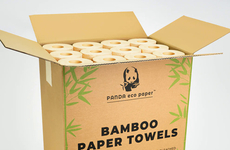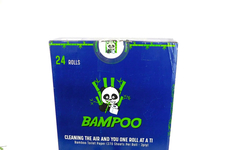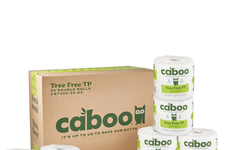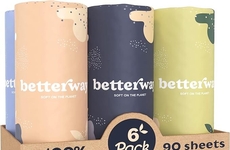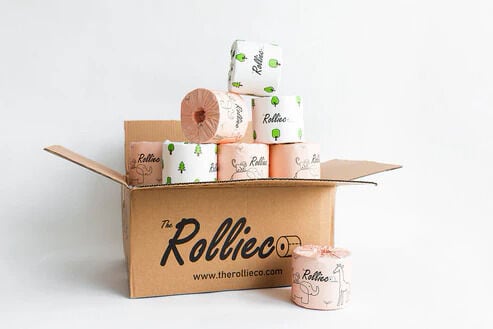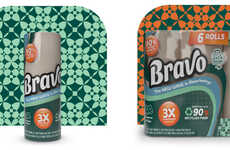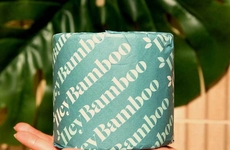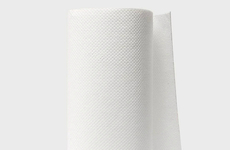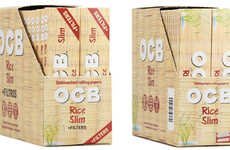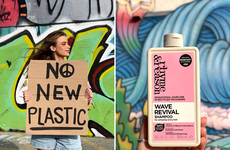
Rollieco's Three-Ply Bamboo Toilet Paper is 100% Recycled
Colin Smith — September 9, 2024 — Social Good
References: therollieco
Rollieco’s 100% recycled bamboo toilet paper is designed with sustainability and environmental responsibility in mind. The product is made entirely from recycled bamboo fibers, which helps reduce the need for virgin materials and minimizes deforestation. Each roll is 3-ply, providing a balance of strength and softness, and contains 400 sheets, which is double the length of standard rolls. The manufacturing process emphasizes zero waste, with plastic-free packaging that is fully recyclable, further reducing the product’s environmental footprint.
In addition to its eco-friendly attributes, Rollieco’s recycled bamboo toilet paper is free from inks, dyes, and scents, making it suitable for individuals with sensitive skin. The company also plants one tree for every box sold, contributing to reforestation efforts. This product aligns with Rollieco’s broader mission to offer sustainable alternatives to everyday products, aiming to reduce the overall environmental impact of consumer goods.
Image Credit: The Rollieco
In addition to its eco-friendly attributes, Rollieco’s recycled bamboo toilet paper is free from inks, dyes, and scents, making it suitable for individuals with sensitive skin. The company also plants one tree for every box sold, contributing to reforestation efforts. This product aligns with Rollieco’s broader mission to offer sustainable alternatives to everyday products, aiming to reduce the overall environmental impact of consumer goods.
Image Credit: The Rollieco
Trend Themes
1. Eco-friendly Hygiene Products - The rise of hygiene products utilizing sustainable materials, such as recycled bamboo fibers, to minimize environmental impact.
2. Plastic-free Packaging - Growing consumer demand for plastic-free packaging solutions is driving innovation in recyclable and biodegradable materials.
3. Products for Sensitive Skin - Development of chemical-free, hypoallergenic hygiene products catering to individuals with sensitive skin.
Industry Implications
1. Sustainable Consumer Goods - Manufacturing and marketing environmentally responsible consumer products aiming to reduce overall ecological footprints.
2. Recycling and Waste Management - Enhancing recycling and waste management processes to support the production of goods using recycled materials like bamboo fibers.
3. Forestry and Reforestation - Investment in reforestation efforts and sustainable forestry practices to replenish natural resources and support ecological diversity.
6.7
Score
Popularity
Activity
Freshness

